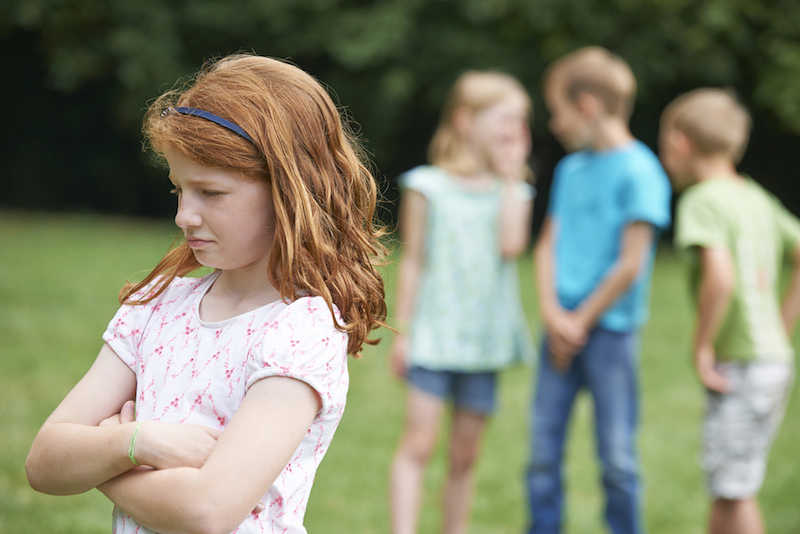Childhood Bullying Can Have Lasting Effects on Mental Health

Bullying can have a lasting effect on a person's mental health: A new study finds that children who were bullied frequently when they were 8 years old were more likely to develop a psychiatric disorder that needed treatment as an adult, compared with kids who were not bullied.
The scientists also found strong evidence that being bullied as a child puts kids at high risk for depression as a young adult, according to the study, published online today (Dec. 9) in the journal JAMA Psychiatry.
The findings suggest that being victimized by bullying in early childhood increases the risk of depressive disorders that need psychiatric treatment later in life, said study author Dr. Andre Sourander, a professor of child psychiatry at the University of Turku in Finland.
Previous studies have found a link between bullying and a higher risk of mental health problems during childhood, such as low self-esteem, poor school performance, depression and an increased risk for suicide. But less is known about the long-term psychological health of adults who, as children, were bullies or victims of bullying.
Studies of childhood bullying with long-term follow-ups from the early school years through adulthood are lacking, Sourander said. This new study is the largest to date to look at bullying among young children, and it also had the longest follow-up period, tracking children from age 8 until age 29, he said. [7 Ways to Recognize Depression in 20-Somethings]
In the study, the researchers analyzed data collected from about 5,000 children in Finland. When the children reached age 8, they filled out questionnaires that asked whether they were victims of bullying or had bullied other children, and how frequently this behavior occurred.
Similar questions about bullying were also asked of the children's parents as well as the children's second-grade teachers.
Get the world’s most fascinating discoveries delivered straight to your inbox.
Using the information gathered from children, parents and teachers, the researchers divided the kids into four groups: kids who were uninvolved in bullying (they were neither bullies nor bullied); kids who were frequent victims of bullying but did not bully others; kids who were frequent bullies but were not the targets of it; and kids who were often bullies and were also often victims of bullying.
Mental-health consequences
Then, the researchers looked at the mental health outcomes of the children from ages 16 to 29 by examining data from a nationwide hospital register that includes all inpatient and outpatient mental health visits in Finland.
They found that the vast majority of the children, or 90 percent of them, were not involved in bullying, and among this group, about 12 percent had been diagnosed with a psychiatric disorder before age 30.
But about 20 percent of those who were bullies as children had a mental health problem that needed medical treatment as a teen or young adult, and 23 percent of the kids who were victims of frequent bullying had sought help for a psychiatric problem before age 30.
The group that fared the worst in terms of adult mental health were the 8-year-olds who were frequently bullies and were also bullied themselves. About 31 percent of these children had psychiatric problems that required treatment, and these kids also had the highest rates of depression, anxiety disorders, schizophrenia and substance abuse of all four groups analyzed in the study.
When a child is both a bully and bullied by their peers, this is a red flag, Sourander told Live Science. It can indicate that the youngster has other serious psychiatric problems, and often, these children are at high risk for later adversities in adulthood, including a wide range of mental health problems, he said.
Being bullied frequently by other children is a traumatic experience, and researchers need to gain a better understanding of how important a child's early peer and school experiences are for their development, Sourander said. When kids are frequently the targets of bullying, it affects their social, emotional and psychological development, he said.
Bullying behavior should be taken seriously by teachers, parents and their peers because early intervention in childhood bullying can help prevent its long-term mental health consequences, Sourander said.
Follow Live Science @livescience, Facebook & Google+. Originally published on Live Science.
Cari Nierenberg has been writing about health and wellness topics for online news outlets and print publications for more than two decades. Her work has been published by Live Science, The Washington Post, WebMD, Scientific American, among others. She has a Bachelor of Science degree in nutrition from Cornell University and a Master of Science degree in Nutrition and Communication from Boston University.


